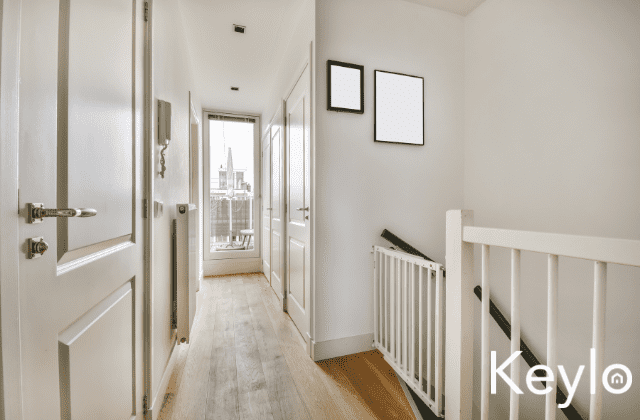
16 Sep Edmonton Property Assessment
Are you looking for someone who can provide you with an Edmonton property assessment? Well, look no further since this guide expounds on the topic.
Nestled in the upper Canadian corridor, Edmonton is the capital of Alberta and the sixth largest city in the country. According to a 2021 census report, the metropolitan population stands at 1,418,118. Edmonton’s government does the property assessment annually and mails out the tax notices in January.
Read on to learn more about how an Edmonton property assessment works and what affects the assessment.
Table of Contents
What is an Edmonton Property Assessment
According to Investopedia, property assessment is the process local governments use to tax your real estate. So, this means that even if you buy Edmonton real estate with cash or a mortgage, you have property taxes to pay.
The administration uses the paid taxes to maintain community amenities. These include education, sewer, police, and fire protection. Moreover, these responsibilities have a percentage contribution to the total bill.
How Does an Edmonton Property Assessment Work
The Edmonton administration does the property assessment on the 1st of July. Edmonton property assessors usually survey the market value your real estate would have sold for on the market.
The current market conditions usually determine their findings. These assessors use the same criteria property appraisers use when a person lists a home for sale. They use credible resources like the Alberta land title office and city property records to verify the information.
The critical thing to note about the process is the dates the relevant authority mails the assessment report. This usually happens in January; you have up to the 23rd of March to file a formal complaint against the report.
The Alberta government releases the education budget, and Edmonton’s administration collects the tax. In May, the Edmonton government usually mails you the property tax notice, giving you up to the end of June to file your property taxes.
Also, note that the taxes depend on the type of real estate, whether residential, commercial, or farmland. The Edmonton government exempts places of spiritual processes from paying property taxes.

What Affects an Edmonton Property Assessment
As highlighted before, the Edmonton property assessment depends on various factors. The simple way to put it is that another homeowner’s tax will be different from yours.
Here is what affects the taxes.
1. Age of the Property
As is the norm in real estate, the property’s age usually determines the value it would get on the market. And since the assessors equate the property assessment to the current market value, an older home will likely see a reduced property tax.
If the property has significant renovations, the assessors consider these changes. Moreover, the renovations change the actual year of construction on your property.
2. Location
Different Edmonton neighborhoods have unique real estate prices buyers would be willing to offer. For instance, according to ZOLO, the price of real estate in Sherwood Park is $410 065, while the average home price in St. Albert is $433 371.
Assessors use four market conditions to assess location: urban, rural, condominium, and waterfront. These markets attract different values hence varying Edmonton property assessment rates.

3. Lot Size
The Edmonton property assessors usually consider the size of your lot by multiplying the frontage and depth. However, note that you will not have these experts measuring the lot on the ground for resources and time effectiveness.
Instead, they get the lot measurements from the relevant Edmonton land offices. The assessors present the calculated area in acreage or square footage. The farmlands make up for acreage presentation, while smaller lot sizes take up the square footage form.
4. Construction Quality
Property assessors usually classify real estate construction quality into ten tiers. This tier system grades ten as the highest quality and one as the lowest, with six being the standard in construction.
Here is a quick overview of the quality classes:
Class 1
This class entails simple one-roomed units, and the finishing is minimal.
Class 2
This category carries structures erected on wooden posts or masonry piers and has no bathroom.
Class 3
This class covers structures built on masonry piers. Structures have minimally partitioned rooms and may have low-quality bathrooms or not.
Class 4
The class comprises simple structures built on posts or piers, small rooms with no hallways, and one bathroom.
Class 5
These structures have a basic design with a narrow hallway connecting the rooms and one bathroom.

Class 6
This quality class features average quality and design and houses one or more bathrooms: one full and a half.
Class 7
This class follows the standard quality and architectural design and has two full bathrooms.
Class 8
This property class entails custom-designed homes with separate dining and sleeping areas. They also entail multiple bathrooms with one ensuite.
Class 9
Properties in class 9 feature highly designed structures with attention to detail. They usually have more than one ensuite bathroom.
Class 10
This class has the highest rating on artistry demonstrated throughout the property. Bedrooms feature sitting areas, walk-in closets, and multiple large ensuite bathrooms.
Edmonton Property Assessment Conclusion
Like other provinces in the country, Alberta has its property assessment process. The Edmonton administration carries out this process annually, and it is crucial to stay compliant.
The above guide has highlighted all you need to know about Edmonton property assessment and its purpose. Moreover, you now know what affects your taxes.
FAQs about Property Assessment Edmonton
What is a property assessment?
It is the process where your local administration values your real estate against the market conditions. This assessment gives the administration the market price estimate your house would fetch.
What is the frequency of an Edmonton property assessment?
The Alberta government usually carries out the property assessment process annually. So you can expect to be paying property tax by the end of June each year.
Can I appeal my property taxes?
Yes, you can appeal your property taxes if unsatisfied with the report. The Edmonton administration allows Edmontonians to file complaints up to the 23rd of March.
Do I have to pay the tax after filing a complaint?
Yes, you will have to pay the tax after filing a complaint. However, the Edmonton government refunds the excess amount paid if the assessment overcharges you.
Who can have access to my property information?
The Edmonton administration only releases information to the property owner or a party appointed by the owner. In this case, the third party can be a spouse, real estate agent, child, or employee if dealing with commercial property.





Sorry, the comment form is closed at this time.